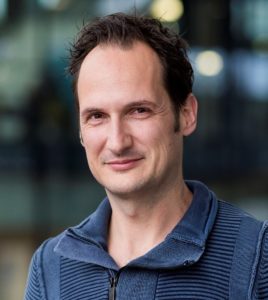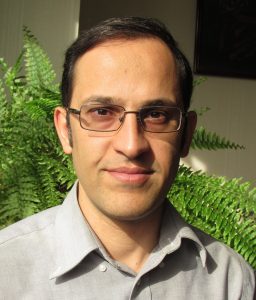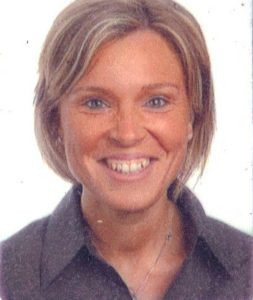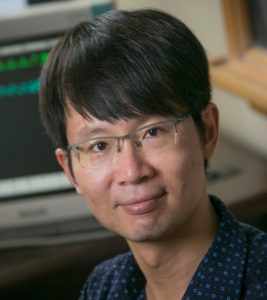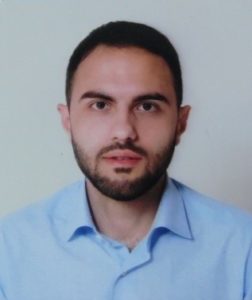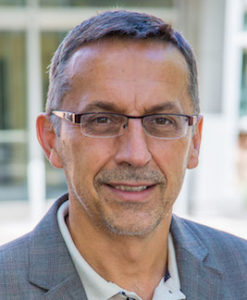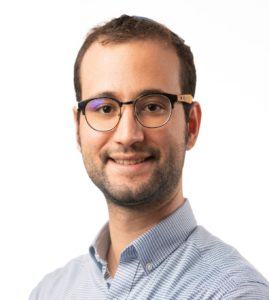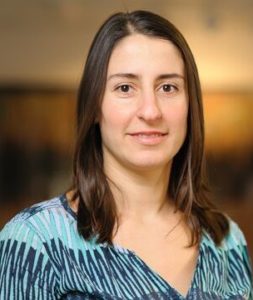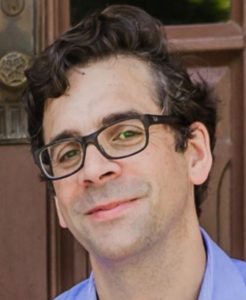 Gari Clifford, PhD
Gari Clifford, PhD
Department of Biomedical Informatics, Emory University School of Medicine
& Department of Biomedical Engineering, Georgia Institute of Technology
Atlanta, GA, USA
Dr. Gari Clifford is a tenured Professor of Biomedical Informatics and Biomedical Engineering at Emory University and the Georgia Institute of Technology, and the Chair of the Department of Biomedical Informatics (BMI) at Emory. His research focuses on the application of signal processing and machine learning to classify, track and predict health. His focus research areas include critical care, digital psychiatry, global health, mHealth, neuroinformatics and perinatal health. After training in Theoretical Physics, he transitioned to AI and Engineering for his doctorate (DPhil) at the University of Oxford in the 1990’s. He subsequently joined MIT as a postdoctoral fellow, then Principal Research Scientist where he managed the creation of the MIMIC II database, the largest open access critical care database in the world. He later returned as an Associate Professor of Biomedical Engineering to Oxford, where he helped found its Sleep & Circadian Neuroscience Institute and served as Director of the Centre for Doctoral Training in Healthcare Innovation at the Oxford Institute of Biomedical Engineering. Dr Clifford is a champion for open access data and open source software in medicine, particularly through his leadership of the PhysioNet/CinC Challenges and contributions to the PhysioNet Resource. Despite this, he is a strong supporter of commercial translation, working closely with industry. He serves as CTO of MindChild Medical, a spin out from his research at MIT, and CSO of Lifebell AI, a new company focused on the application of machine learning to develop affordable innovations in health.
 Rik Vullings, PhD
Rik Vullings, PhD
Department of Electrical Engineering,
Eindhoven University of Technology, NL
Rik Vullings obtained the M.Sc. degree cum laude in Applied Physics at the Eindhoven University of Technology (The Netherlands) in 2005. He received the Ph.D. degree from the Eindhoven University of Technology, Department of Electrical Engineering, with a thesis on the analysis and interpretation of the non-invasive fetal electrocardiogram. This research, in collaboration with the Máxima Medical Centre Veldhoven formed the basis for a spin-off venture, Nemo Healthcare, aiming at the realization of a system for pregnancy monitoring. Dr. Vullings is co-founder of this spin-off and he still works there part-time as Scientific Director. He is currently assistant professor at the Eindhoven University of technology, Signal Processing Systems group and board member of the Biomedical Diagnostic Lab. His idea on the possibility of standardizing the non-invasive fetal electrocardiogram towards diagnostic use was awarded in 2012 with a personal grant (STW/Veni) and the use of unobtrusive, capacitive sensors with a STW-HTSM grant in 2014.
In 2019, he was awarded the Henk Stassen award for Early Career Achievements in the field of Biomedical Engineering from the Dutch conference on biomedical engineering. He has co-authored over 100 publications (approx. 60 journal publications, >60 conference proceedings) and holds 8 patents and patent applications. His research interests include electrophysiological signal processing and modelling and data-driven modelling, with special focus on cardiology and perinatology related applications.
Reza Sameni, PhD
Department of Biomedical Informatics,
Emory University School of Medicine
Atlanta, GA, USA
Dr Reza Sameni received a Bachelor’s degree in Electronics Engineering from Shiraz University, Iran (2000), a Master’s degree in Biomedical Engineering from Sharif University of Technology, Iran (2003), and a double Ph.D. degree in Signal Processing and Biomedical Engineering from Institut National Polytechnique de Grenoble (INPG), France, and Sharif University of Technology (2008). He was a tenured Associate Professor of the School of Electrical and Computer Engineering, Shiraz University (2008-2018), an invited senior researcher at GIPSA-lab, Grenoble, France (2018-2020), and currently an Associate Professor of Biomedical Engineering at Emory University (since 2020). Dr Sameni is also a Senior Member of the Institute of Electrical and Electronics Engineers (IEEE) since 2015. His research interests include statistical signal processing with special interest in modeling, filtering and analysis of fetal cardiac signals from noninvasive maternal abdominal recordings. He has coauthored more than 65 articles published in peer-reviewed journals and conferences and holds several national and international academic awards in teaching and research. Dr Sameni has also worked in industry and startup companies on the design and implementation of digital electronics systems and digital signal processing algorithms, especially for fetal cardiac monitoring and other biomedical applications, over the past 20 years.
Maria G. Signorini, PhD
Department of Electronics, Information and Bioengineering,
Politecnico di Milano, IT
Maria G. Signorini is Full Professor at Department of Electronic, Information and Bioengineering, Politecnico di Milano since 2003. At the same University, she obtained the Ph.D. in Biomedical Engineering in 1995. After a Post Doc fellowship (1996-98) she became Research Assistant (1999).She served as Coordinator of the Biomedical Engineering PhD track at the Doctorate School of the Politecnico di Milano (2004-2014). 2014-2016 she has been charged by the Italian Government as member of the national Committee of Experts for the Policy of the Research (CEPR) at the Ministry of the University and Research (MIUR). Her main research field is focused to improve healthcare paths and medical devices by introducing both new methodological approaches and technological solutions based on biomedical signal processing. Her activity is devoted to fetal heart rate monitoring through analysis and classification by data analytics and machine learning techniques. She developed multiparameter approaches integrating linear and nonlinear parameters towards the prediction of risk in antepartum fetal monitoring, premature babies, dialysis patients and others cardiovascular diseases. Research results have been translated into technological solutions with modification of existing biomedical devices (Cardiotocography, Dialysis) or design of new instrumentation (wearable fetal HR monitoring). Maria G. Signorini is PI of the Prin Miur Project ICT4MOMs and co-investigator in research projects. She is reviewer for several Scientific Journals (IEEE-EMBS Trans., Physiol. Measur, Chaos, Biom Eng &Comp, …). She is serving as Associate Editor of Computer methods and Programs in Biomedicine and in Frontiers in Physiology. Since 2007 she is Associate Editor for the IEEE-EMBS Conference, Theme: Biomedical Signal Processing
 Tammo Delhaas, MD, PhD
Tammo Delhaas, MD, PhD
Department of Biomedical Engineering,
Maastricht University Medical Center, NL
Tammo Delhaas, MD, PhD, is Pediatric Cardiologist and Professor of Biomedical Engineering. He obtained his MD at the University of Groningen and received his PhD degree from Maastricht University in 1993 for a thesis on cardiac mechanics. After his training in Pediatrics in Maastricht and Utrecht, he received a Fulbright grant / ICIN-Fellowship and spent one year at the Departments of Bioengineering and Medicine from the UCSD. Thereafter he trained in Pediatric Cardiology in Aachen and Melbourne. In 2000 he returned to Maastricht as Pediatric Cardiologist and continued his research on the crossroads of (Pediatric) Cardiology, Physiology and Biomedical Engineering. In 2009 he was appointed Professor and Chair of Biomedical Engineering at Maastricht University where he is involved in projects related to cellular and cardiac mechanics, cardiac pacing, and mathematical modeling of the heart and circulation.
Ernesto D’Aloja, MD, PhD
Department of Medical Sciences and Public Health,
University of Cagliari, IT
Full Professor of Forensic Medicine in various Postgraduate Courses in the field of minimally invasive surgery for the diagnostic application of Biotechnologies, diagnostic genetic counseling and in oncology, emergency and urgency in the Emergency and Assistance departments, Transfusion Medicine, Neonatology and Pediatrics , of Anesthesia and Intensive Care and of Plastic and Reconstructive Surgery. He is a member of the clinical risk commission of the Italian Society of Pediatrics (SIP) and of the Italian Society of Neonatology (SIN). He is the author of over 180 publications (overall IF> 250) in national and international journals on forensic genetics, medical professional liability, forensic pathology, psychiatry, forensic toxicology and bioethics. He is a member of the Italian Society of Forensic Medicine (SIMLA), of the International Society of Forensic Genetics (ISFG) and was President and Past President of the GeFI (Italian Forensic Geneticists). Since 2008 he has been President of the Independent Ethics Committee of the University Hospital of Cagliari (since 2013 one of the two Ethics Committees of the Sardinia Region).
 Daniele Trevisanuto, MD, PhD
Daniele Trevisanuto, MD, PhD
Department of Women’s and Child’s Health,
University Hospital of Padua, IT
Veneto Region Italian Society of Neonatology and Director of the East Veneto Region Neonatal Transport Service. Professor Trevisanuto is vice-director of the Master on “Neonatology and intensive neonatal care” at the University of Padua. From 2012 to 2015 he was the Secretary of the Study Group on Neonatal Resuscitation, Italian Society of Neonatology. He is a member of the International Liaison Committee on Resuscitation– Neonatal Resuscitation Task Force and a member of the European Resuscitation Council, Task Force Neonatal Resuscitation. His research has focused on the following topics: neonatal resuscitation, education, maternal and neonatal care in low-resource countries, neonatal airway management, neonatal transport. He is involved in many international collaborative projects and has been invited as a speaker in about 250 national and international congresses, meetings, and workshops. Since a long time, he is conducting educational and research activities in many middle- and low-research countries (i.e. Mongolia, Vietnam, Myanmar, Sudan, Mozambique,Uganda, Ethiopia). He is author or co-author of more than 270 peer-reviewed articles (PubMed) and has published chapters in neonatology books. He is the co-inventor of a supraglottic airway device for drug delivery.
 Silvia Visentin, MD, PhD
Silvia Visentin, MD, PhD
Department of Women’s and Child’s Health,
University Hospital of Padua, IT
Degree in Medicine and Surgery at the Faculty of Medicine and Surgery of the University of Padua in 2003, and Specialization in Obstetrics and Gynecology at the Obstetrics Gynecological Clinic of the University of Padua in 2009, achievement of the title of PhD in 2014 at the University of Udine in Clinical Sciences and Technologies. She holds various courses at the School of Specialization in Gynecology and Obstetrics of the University of Padua and at the Padua branch of the three-year degree course in Obstetrics of the University of Padua. Her main research interests are Intrauterine Growth Defect, Maternal-Fetal Doppler, Fetal Wellbeing Surveillance, Fetal Therapy in Uterus, Twin Pregnancies, Infectious Diseases in Pregnancy, Premature Birth. For her research she has received more than 10 scientific awards. She has been coordinator of several multicenter studies on fetal well-being and member of the editorial board of several journals. She is the author of 78 indexed international scientific publications.
 Hau-Tieng Wu, MD, PhD
Hau-Tieng Wu, MD, PhD
Department of Mathematics
& Department of Statistical Science,
Duke University, North Carolina, USA
Dr. Wu received his doctoral degree in mathematics in 2011 from Princeton University under the supervision of Professor Ingrid Daubechies. Half of Dr. Wu’s thesis was guided by Professor Amit Singer as well. After spending from 2011 to 2014 as a postdoctoral research fellow in Program in Applied and Computational Mathematics (PACM) in Princeton University, Statistics in UC Berkeley, and Mathematics in Stanford, he joined Mathematics in University of Toronto, where he served as a tenure-track assistant professor until June 2017. Starting from July 2017, he joined Department of Mathematics and Department of Statistical Science in Duke university as a tenured Associate Professor. Before he came to mathematics, he obtained his medical degree from National Yang Ming University (now National Yang Ming Chiao Tung University), Taiwan, in 2003, and practiced as a resident doctor afterward in Taipei Veterans General Hospital. In 2015, Dr. Wu was awarded the Sloan Research Fellowship. In 2017, he was awarded the PIMS Early Career Award by the Canadian Applied and Industrial Society (CAIMS). Dr. Wu has coauthored over 100 journal publications and 8 conference proceedings. He is currently a member of the editorial boards of Applied and Computational Harmonic Analysis and Frontiers in Applied Mathematics and Statistics. Dr. Wu’s research interest embraces a broad spectrum of problems from mathematics, statistics, to medicine. He is particularly interested in biomedical signal processing, providing intelligent augmentation solutions for healthcare and establishing the underlying theoretical foundation.
 Salvatore Tagliaferri, MD, PhD
Salvatore Tagliaferri, MD, PhD
Department of Neuroscience, Reproductive and Dentistry Sciences
University of Naples “Federico II”, IT
Dr. Salvatore Tagliaferri, MD, PhD, is gynecologist. He obtained his MD and PhD degree in Neuroscience in 2021 for a thesis on “analysis of MiRna levels in maternal blood to evaluate hypoxic events in intrauterine growth restricted fetuses” at the University Federico II of Naples. He is working at Hospital “A. Cardarelli” of Naples from 2019. His main research field is focused to evaluate fetal well-being through medical devices (ultrasound and cardiotocography) using both new methodological approaches and technological solutions based on biomedical signal processing. He used multiparameter approaches integrating linear and nonlinear parameters towards the prediction of risk in antepartum fetal monitoring and premature babies. He is participating to the Prin Miur Project ICT4MOMs.
 Petar M. Djurić, PhD
Petar M. Djurić, PhD
Department of Electrical and Computer Engineering
Stony Brook University, NY, USA
Petar M. Djurić received the B.S. and M.S. degrees in electrical engineering from the University of Belgrade, Belgrade, Yugoslavia, respectively, and the Ph.D. degree in electrical engineering from the University of Rhode Island, Kingston, RI, USA. He is a SUNY Distinguished Professor and currently a Chair of the Department of Electrical and Computer Engineering, Stony Brook University, Stony Brook, NY, USA. His research has been in the area of signal and information processing with primary interests in machine learning. Currently he is involved in a major project related to novel machine learning methods for electronic fetal monitoring. He has been invited to lecture at many universities in the United States and overseas. Prof. Djurić was a recipient of the IEEE Signal Processing Magazine Best Paper Award in 2007 and the EURASIP Technical Achievement Award in 2012. In 2008, he was the Chair of Excellence of Universidad Carlos III de Madrid-Banco de Santander. From 2008 to 2009, he was a Distinguished Lecturer of the IEEE Signal Processing Society. He has been on numerous committees of the IEEE Signal Processing Society and of many professional conferences and workshops. He was Editor-in-Chief of the IEEE Transactions on Signal and Information Processing over Networks. Prof. Djurić is a Fellow of IEEE and EURASIP.
 Joachim Behar, PhD
Joachim Behar, PhD
Artificial Intelligence in Medicine Laboratory,
Faculty of Biomedical Engineering, Technion-IIT, Haifa, Israel
Dr. Behar is heading the Artificial Intelligence in Medicine Laboratory (AIMLab.) at the Technion faculty of Biomedical Engineering, Haifa, Israel. The lab focuses on the usage of machine learning in medicine within the context of physiological time series analysis with a specific focus in sleep medicine and cardiology. Dr. Behar is twice winner of the MIT-PhysioNet/Computing in Cardiology competition. He has authored and co-authored over 33 journal papers in leading engineering, physiology and medical journals and contributed many open access databases of physiological waveform and open source code (e.g. PhysioZoo, fecgsyn). He is editor for the journal Physiological Measurement and has been on the program committee of the Computing in Cardiology international conference since 2013. Joachim holds a PhD in biosignals processing and machine learning from the university of Oxford which was completed under the supervision of Prof. Gari D. Clifford and Dr. Julien Oster. He holds a MEng from l’Ecole Nationale Superieure des Mines de Saint-Etienne in France in Engineering. He completed his postdoctoral study in computational physiology under the guidance of Prof. Yael Yaniv at the Technion where he worked on mathematical modelling of sinoatrial node cells.
 Antoniya Georgieva, PhD
Antoniya Georgieva, PhD
Nuffield Department of Women’s and Reproductive
Health & Big Data Institute, University of Oxford
Dr Antoniya Georgieva is an Associate Professor and Scientific Director of the Oxford Centre for Labour Monitoring. She developed her career in big maternity data, building on her expertise in machine learning, computing and mathematics (with a BSc in Applied Maths and a PhD in optimisation methods for artificial neural networks), but specialising in fetal monitoring. Dr Georgieva’s multidisciplinary team is focused on developing data-driven algorithms and software to continuously assess fetal wellbeing during labour. The methods are based on cardiotocography (CTG) in the context of clinical risk factors for the mother and baby.
As the starting point, the team has already developed a prototype system and accompanying software running on a mobile App. It is derived from a large birth cohort of nearly 100,000 term deliveries, by systematic analysis of computer-based CTG features and clinical risk factors in relation to perinatal outcomes. The algorithms run in real-time at the Oxford John Radcliffe Hospital and proof of concept co-design studies are impending. Usability and reliability are at the core of all our work, with a dedication and commitment to bring long overdue progress in fetal monitoring and benefit families and healthcare professionals.
 Philip Warrick, PhD
Philip Warrick, PhD
Department of Biomedical Engineering,
McGill University, Montreal QC Canada
Senior biomedical research engineer
PeriGen, Westmount,Canada
Dr. Philip A. Warrick obtained a B.A.Sc. (Electrical Engineering) from the University of Waterloo (Waterloo, Canada), and a M.Eng. (Electrical Engineering) and Ph.D. (Biomedical Engineering) from McGill University (Montreal, Canada). His research interests lie in the fields of systems modelling, statistical signal processing, machine learning (including deep learning), decision support systems, obstetrics and cardiology. His interest in novel intra-partum signal modelling and associated diagnostic tools has exposed areas of improvement for current clinical data acquisition (ultrasound for fetal heart rate and tocography for maternal uterine pressure) that new sensor research and technology has begun to address by providing surface electrode acquisition of both fetal ECG and maternal uterine pressure as electrohysterography (EHG). These developments facilitate research into higher quality models, in terms of signal-to-noise ratio and information extraction, to improve intrapartum diagnosis of the fetal state. Many aspects of fetal heart rate interpretation share commonality with other biomedical signals, especially with other currently challenging issues in cardiology. He has directed successful projects involving fetal ECG detection from abdominal sensors, adult electrocardiogram (ECG), phonocardiogram classification for early diagnosis of arrhythmias and arousal detection from polysomnography.
 Roberto Sassi, PhD
Roberto Sassi, PhD
Computer Science Department
Università degli Studi di Milano, IT
Roberto Sassi is full professor of Computer Science in the Department of Computer Science of the University of Milan where he teaches courses in signal processing and statistics, with particular emphasis on biomedical signals. He graduated in Electronic Engineering from the Politecnico di Milano in 1996, where he obtained his PhD in Bioengineering in 2001. He also obtained the national scientific qualification as full professor in electronic and computer bioengineering. He is the coordinator of the degree course in Computer Science for Digital Communication and member of the doctoral school in computer science. He is a senior member of IEEE, a member of the eCardiology working group of the European Society of Cardiology (ESC), for which he participated in coordinating the development of the consensus document on the use of non-linear methods in the study of cardiac variability, and treasurer of the National Bioengineering Group. Since 2008 he has been director of the “Biomedical image and Signal Processing” laboratory (BiSP Lab) and responsible for various research projects funded by national and international bodies. His research activity has mainly focused in the fields of biomedical signal processing, biometrics and applied mathematics. The results have been published in more than 120 publications in international journals and conference proceedings.
 Massimo Walter Rivolta, PhD
Massimo Walter Rivolta, PhD
Computer Science Department
Università degli Studi di Milano, IT
Massimo Walter Rivolta was born in Milano, Italy, on December 22nd, 1985. He received the B. Sc and M. Sc. degrees in Biomedical Engineering in 2007 and 2011 from the Politecnico di Milano, Italy. In March, 13th 2015, he obtained a Ph. D. degree in Computer Science at the Università degli Studi di Milano, Italy. Currently, he is a researcher and member of the Biomedical image and Signal Processing Lab (BiSP) at the Università degli Studi di Milano, Italy.
His research interests include signal processing, optimization techniques, feature extraction, computational intelligence and computerized simulations, with focus on biomedical applications.

